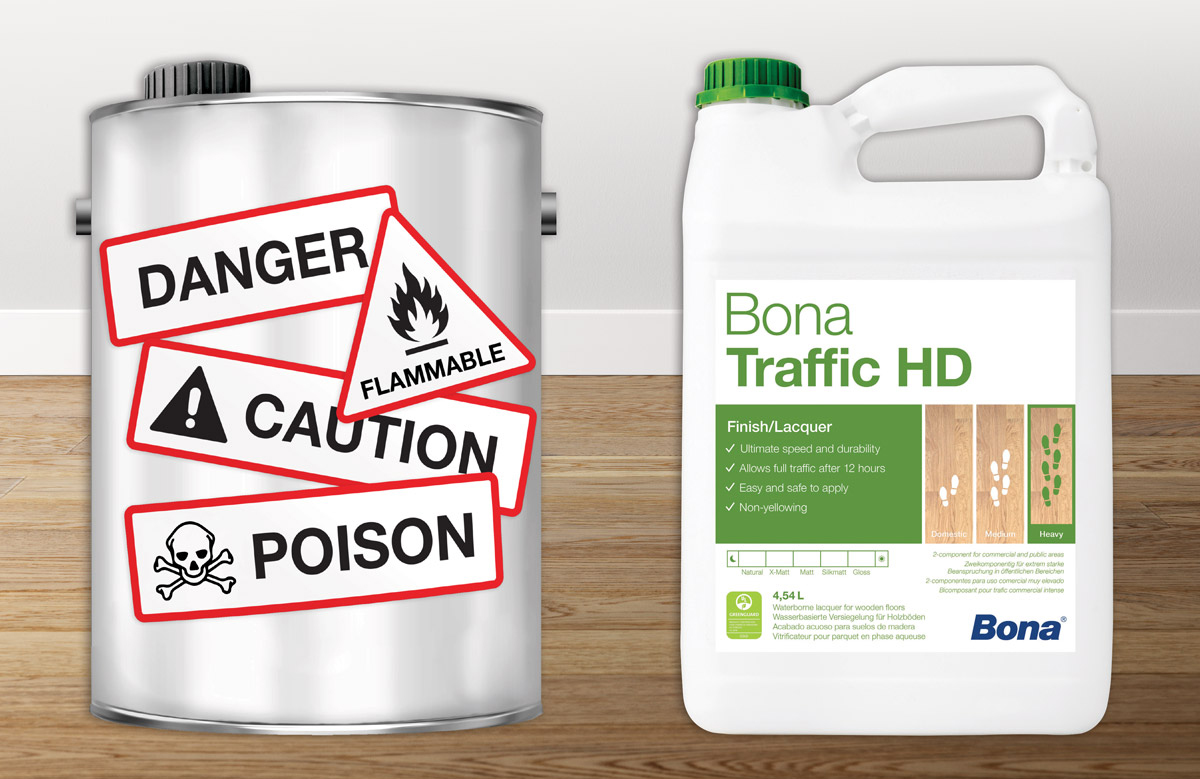- Home
- Professionals
- FAQ
- Solvent vs Water-Based
Solvent vs Water-based Floor Finishes
Protect your own and your customers health by choosing water-based finishes.
The toxic health effects associated with occupational exposure to solvents have long been recognised. Solvent-based timber floor coatings are toxic, carry serious health risks and are harmful to the environment. They are classified as poisons and are dangerous not only to those who apply the coatings, but also home owners and other ‘passive’ users who come into contact with these products.
Despite solvent finishes now being illegal in Europe, and greater health and safety awareness around timber floor finishes in general, contractors in Australia still use solvent finishes, placing themselves and their customers at direct risk.
Water-based coatings are non-toxic and environmentally responsible. Bona Sweden pioneered the development of water-based floor finishes in 1979 and is now the recognised world leader in non-toxic water-based coatings for timber floors.

Solvent finishes pose serious health risks. Some of the health effects related to short and long-term solvent exposure include:
- • Chronic and Acute Asthma
- • Sleep Apnea
- • Clinical Depression, Aggressive Behaviour
- • Impaired Fertility, Birth Defects, Neurocognitive Development
- • Memory Loss, Brain Damage
- • Peripheral Nerve Conditions
- • Increased Susceptibility to Cancers
 SOLVENT-BASED
SOLVENT-BASED
![]()
- 300-850g/Lt VOC
- Solvent-based polyurethane
- Toxic hazardous chemicals & Isocyanates
- Classified as a poison
![]()
- Toxic fumes and Isocyanates
- Asthma, Headaches, Nausea, Respiratory irritation
- Impaired fertility, Nervous System Disorders, Insomnia, Depression, Anxiety, Fatigue
- Contaminates foodstuffs in fridge & pantry
- Requires toxic chemicals for clean-up
- Home owners should vacate home for up to 14 days due to toxic fumes off-gassing
![]()
- Plastic unnatural appearance
- Yellows
- Old technology, Designed for yesterday
 WATER-BASED
WATER-BASED
![]()
- 40-90g/Lt VOC
- Water-based polyurethane
- No hazardous chemicals
- No health risk
![]()
- No toxic fumes
- GreenGuard Gold Certified
- No effect on fresh or stored foods
- Easy clean-up in water
- No need to vacate premises, Home owner can remain throughout application
![]()
- Beautiful, natural looking finish
- Non-yellowing
- Hard-wearing protection proven on millions of square metres
